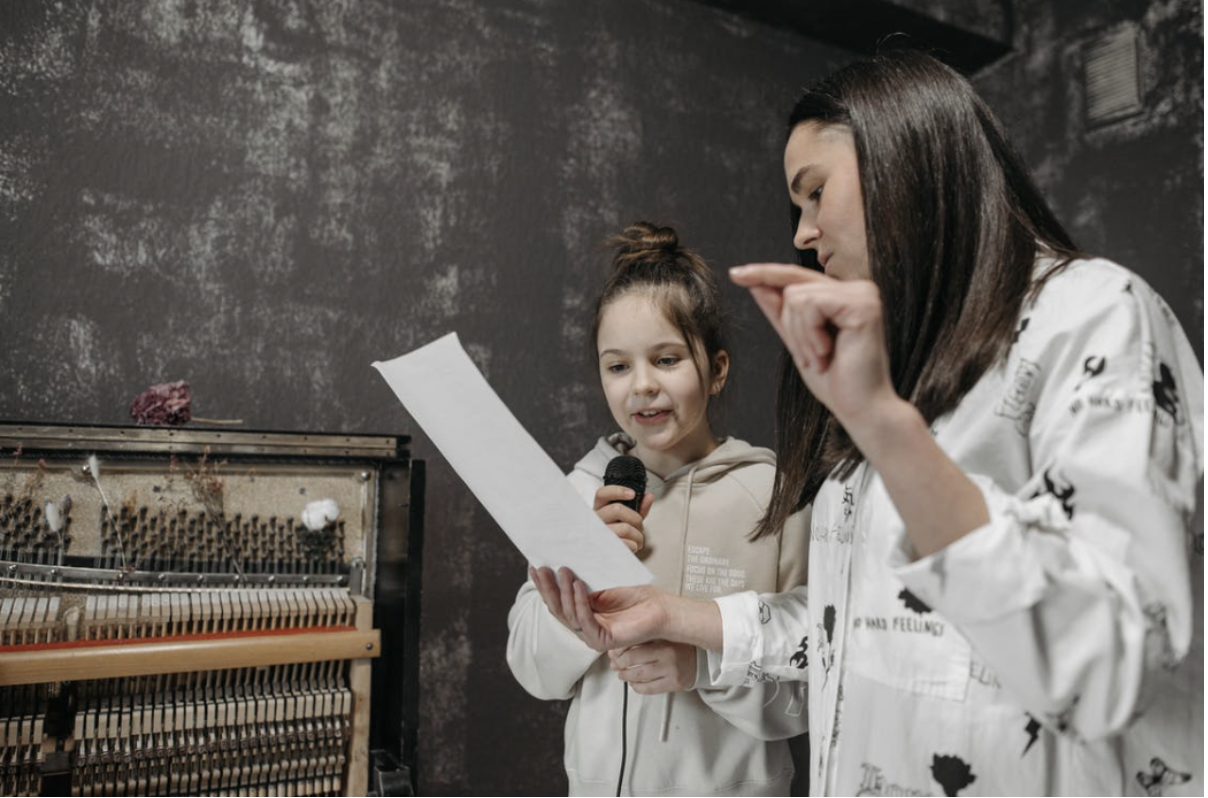Vocal training is important for kids not only because it helps improve the quality of their singing voice but also because it strengthens their vocal cords, which can reduce the risk of damage such as nodules and polyps. Vocal training for kids is generally divided into singing exercises that involve singing in a range of pitches (i.e. a selection of vocal registers) and voice lessons or voice therapy that are designed to improve one’s voice skills in the area of their vocal range.
Benefits of vocal training
- Singing exercises for range
Vocal training helps develop the range and quality of a child’s voice. By singing in a range of pitches, one’s vocal cords learn to vibrate at different rates, producing distinct sounds and pitch frequencies. For instance, when a child learns to sing in the high pitch or soprano range, one finds that the child is able to effectually reach the higher pitch sounds such as “Do” or “Re”, whereas when he or she sings in the baritone or bass range, one finds that the child is able to effectively reach “Sol” and “La”. This process is known as vocal registration.
- Voice lessons
Another type of vocal training involves voice lessons, which are designed for the improvement of one’s overall voice skills. This can include breathing techniques that allow a person to sing with clear pronunciation and breath control, stress reduction as well as vocal warm-ups before an event or performance. One should note that these techniques are more likely to be helpful for those who experience problems such as lack of vocal range and inability to sing during performances.
- Kids with special needs
Children with autism have difficulties interacting with their peers and staying attentive during lessons. Therefore, Vocal training is easily adapted to the needs of children with Autism and other special needs. The use of music during vocal training can also improve the auditory and motor processes involved in learning.
- Kids in school
Kids are generally accustomed to singing either in a choir or on stage. They may also practice by themselves just to develop or improve their voice. But when children are in school, they are often subjected to pressure from their peers and teachers to sing songs that do not fit their natural voice or may create a negative image of them. For instance, if students cannot sing, they may be told that they cannot go on stage. This can cause emotional distress and result in poor skills such as vocal strength and tone control. Therefore, school teachers ought to help students understand the importance of their own voice and practice methods that improve singing skills such as breathing.
The hardest part about vocal training is choosing a good instructor. The instructor should be qualified and experienced in the area of proper vocal training for kids. They should be able to give tips on proper practices that can help develop the pitch and tone of a person’s singing voice. Another way to choose an effective instructor is by asking your friends, relatives or teachers who they recommend or have heard of in the past, who they think are good instructors and why they are good. Finally, ask your kids if they enjoyed their previous lessons and if they have improved their singing skills because of these lessons.

